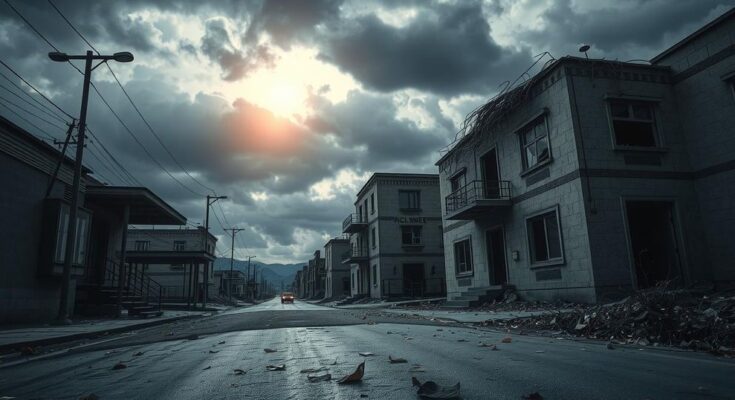The Democratic Republic of Congo is experiencing a violent resurgence of conflict as the M23 rebel group targets control of territory, particularly around Goma. The U.N. warns of escalating violence leading to a potential broader war, with over 400,000 displaced last month. As the Congolese government mobilizes forces against the insurgents, international responses remain inadequate, raising concerns about the geopolitical implications of the crisis. The conflict is deeply rooted in historical ethnic tensions between the DRC and Rwanda, compounded by foreign interests in the DRC’s mineral wealth.
A violent resurgence of the M23 rebel group has reignited a longstanding conflict in the Democratic Republic of Congo (DRC). This area, abundant in valuable minerals like cobalt and copper, has seen intense fighting as M23 aims to expand its territory from Goma, a crucial eastern city. The United Nations has issued warnings regarding the potential escalation into a broader war, indicating serious humanitarian concerns affecting over 400,000 displaced individuals in recent months.
After taking control of Goma, M23’s leader, Corneille Nangaa, stated intentions to push toward Kinshasa, prompting the Congolese government to undertake a significant mobilization effort. President Félix Tshisekedi characterized the offensive as a direct challenge from Rwanda, and expressed commitment to reclaim every inch of Congolese territory. Reports of corpses in the streets of Goma highlight the dire humanitarian situation.
The international community’s response has been tepid, despite the deteriorating conditions in the DRC. Notably, Romanian mercenaries engaged in the fighting had to surrender, taking refuge with the United Nations peacekeepers. U.S. officials, including former President Donald Trump, have acknowledged the crisis, yet the muted reactions from Western powers may allow nations like China and Russia to strengthen their influence in the region as fears about credibility arise.
The M23, predominantly formed by ethnic Tutsi, emerged from historical tensions between Rwanda and the DRC. The group claims to protect its minority rights while facing allegations of receiving support from Rwanda amidst worsening clashes with government forces. Rwandan President Paul Kagame’s involvement remains contentious, although Rwanda denies offering military assistance to the insurgents.
China’s stakes in the DRC are high, as it owns a significant percentage of the cobalt output, vital for global electronics. The DRC’s rich mineral resources are now claimed by numerous armed groups, leading to a destabilized operational environment for mining activities. While China has expressed concerns over the unrest, experts believe immediate threats to mineral supply chains are minimal for now.
In previous conflicts, M23’s rapid conquest of Goma was countered by international intervention, resulting in the group’s quick withdrawal. This time, though, many observers note a reluctance from the international community to clamp down on Rwanda’s influence, as some Western nations continue to support Rwanda despite its controversial role in the conflict. Amid ongoing military advances, aid flows to Rwanda remain intact, highlighting the need for a concerted international response to the crisis.
The Democratic Republic of Congo has a complicated history characterized by decades of conflict rooted in ethnic tensions and outside influences. Since gaining independence from Belgium in 1960, the DRC has struggled with civil wars, regional conflicts, and the significant impact of foreign interventions aimed at controlling its rich mineral resources. The resurgence of the M23 rebel group adds urgency to an already volatile situation, with humanitarian implications extending beyond Africa. The DRC is notable for its mineral wealth, particularly cobalt, which is a critical component in global electronics manufacturing. The rise of the M23 insurgency, with backing alleged from Rwanda, complicates the geopolitical landscape, drawing the attention of global powers like the United States and China, and raising concerns about the long-term stability of the region.
In conclusion, the growing aggression of the M23 rebel group in the Democratic Republic of Congo signifies a distressing escalation in a longstanding conflict, which threatens regional stability and humanitarian well-being. While international reactions remain lukewarm, the implications resonate worldwide due to the DRC’s rich mineral resources vital for technology. A clear need for urgent and unified global action emerges, as the humanitarian crisis continues to unfold and geopolitical dynamics shift in favor of rival interests.
Original Source: www.nbcnews.com




